Media Journal: Best of February & March 2021
I've been intending to make one of these best-of-the-month posts per month. I mean, it's in the name. Could not have expected an unprecedented climate disaster to upend my living situation and all of my plans from mid-February to early March. So, a lot of plans I had for the blog in February got postponed.
As a result, this month you're getting two for one: the best (non-Project-related) media I experienced over the last two months.
Quick note: there's no book in these two months, despite my intention to read one book a month. I did read in February and March, but didn't finish a book yet. It happens. Should be able to make up for that in future months, though.
FILMS
Soul
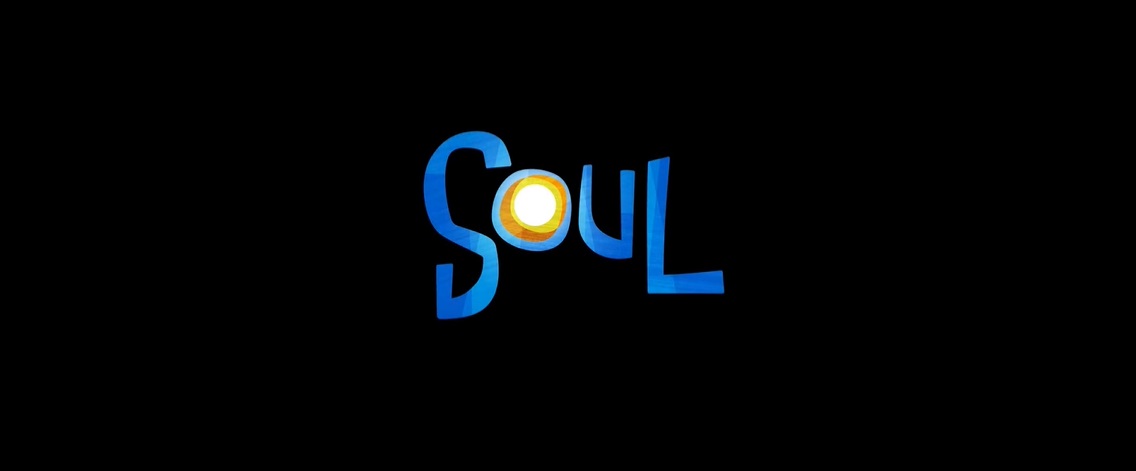
It's fascinating to think that there was a time, from about 1999 to 2010, when every Pixar film was a must-see. (Disney Animation had a similar period from 2008 to 2016, and Marvel and Star Wars have now been in that position for several years.) In the early 2010s, Pixar lost that must-see status, plagued by too many sequels (Cars 2, Monsters University) and poor quality original films (Brave, The Good Dinosaur).
Putting Pixar's films on Disney+ for no additional charge is honestly a pretty good idea. This'll get more eyes on Pixar's newest films, which seem to be a return to form for the company. Their upcoming summer project, Luca, looks good, and their latest offering from last Christmas, Soul, is very good.
Soul is a movie about Joe Gardner (played by Jamie Foxx), a young black music teacher with ambitions to be in a band. On the day he gets his first big break, he dies suddenly, but he refuses to go quietly into the afterlife. Instead, he embarks on a quest to return to his old body and life, accompanied by Soul 22 (played by Tina Fey).
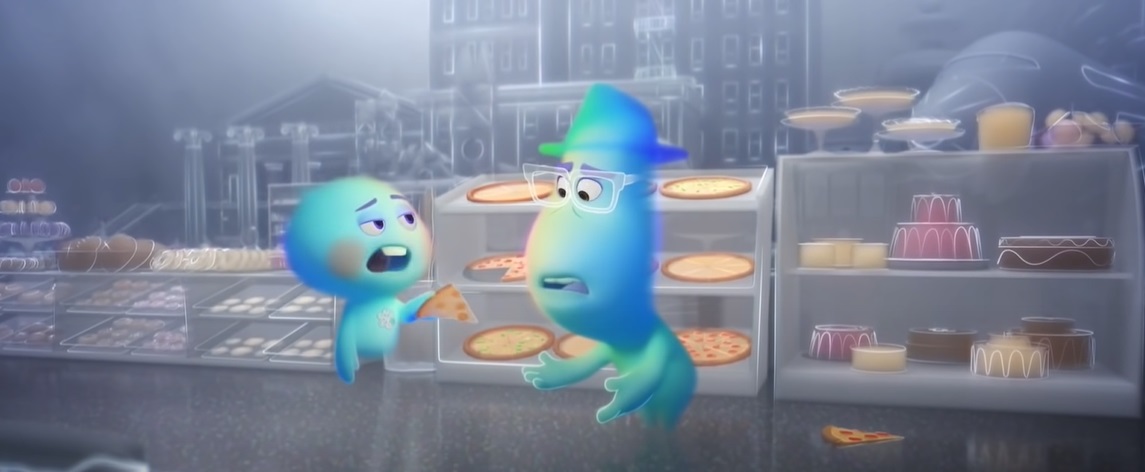
Soul did not quite grab me at first. Joe firmly believes that he died before he was able to fulfill his life's purpose, and the afterlife does nothing to disabuse him of that notion. He learns that new souls must find their "spark" before they are able to embark on the journey of life; since 22's never found their spark, they've never lived. So Joe, believing that nothing is more important than fulfilling his destiny, works to restore his life at any cost.
But while 22 is helping Joe out, they begin to experience the possibilities of life in a far more tangible way than they ever have before. And this is where Soul shines, and why it had me in tears by the end. Despite its premise, Soul celebrates the mere act of living, and the wondrousness of life's experiences, even if they're as simple as eating a slice of pizza, or watching a leaf float to the ground.
Parasite
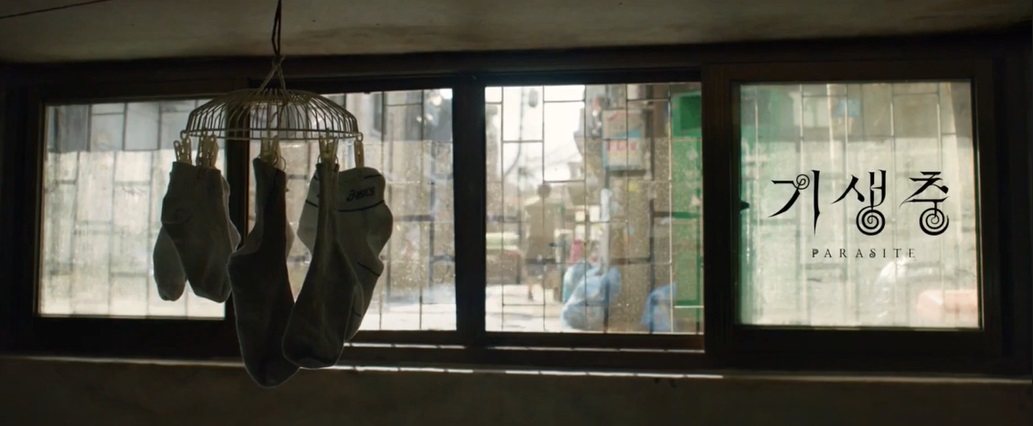
I'm impressed that this film got made. I'm even more impressed that it received the accolades it did in the US. Parasite is the first-ever foreign film to win the Oscar for Best Picture, and yet it's a brutal story about classism that's deeply anti-capitalist. It's not the sort of cutting critique that I usually expect to see getting accolades by Hollywood. My best guess is that the Korean setting gave the Academy enough remove from the story to not see it as a critique of the system it's a part of.
The film follows a poor Korean family living in the slums. They suddenly get a break when a family friend invites the son to be an English tutor for a rich family. The boy acquires another tutoring job from the same family for his sister, and together they get chauffeur and housemaid jobs for their parents, resorting to increasingly unethical measures to bring the whole family in on the scam.
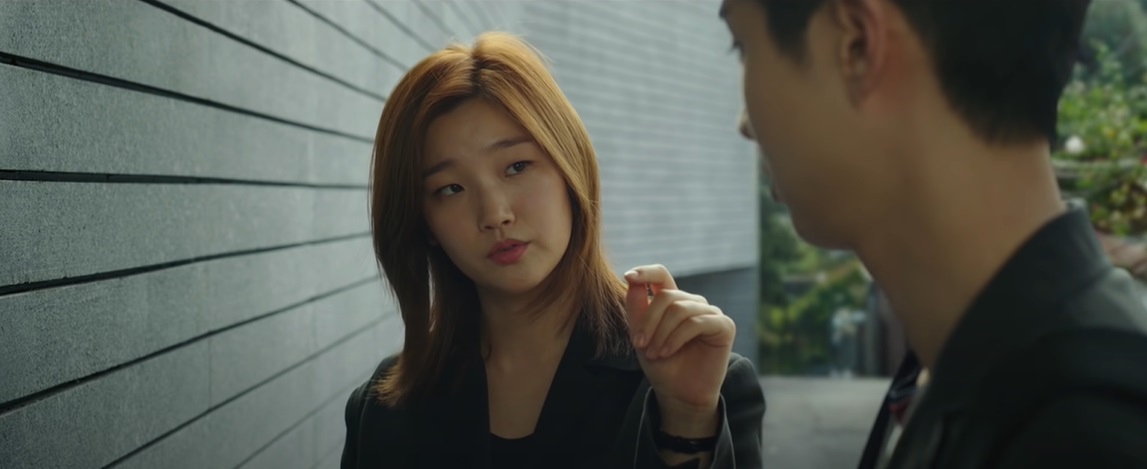
Bong Joon-Ho has made some sensational genre films over the course of his career, including the apocalyptic Snowpiercer, and the monster movies Okja and The Host. Parasite succeeds in its simplicity, and as somebody living in poverty, I found it deeply relatable. It has some iconic moments, especially a rainstorm sequence which displaces the poor family from their home, but which serves as a pleasant experience for the rich family.
I couldn't actually finish the film, because the climactic sequence gets a bit too gory for me to stomach. But the parts of the film I saw were thought-provoking and very funny. I'd call it one of the must-see films of the past couple years; it's only gotten more relevant with time and a global pandemic.
Ready Player One

I've been unsure for years whether or not to watch this film. I read the book years ago, and found it underwhelming, and it's aged very poorly since then. The reports I heard when the movie came out was that it was a visually spectacular adventure, but 2018 was a pretty packed year for blockbuster movies, so I missed it. Now I've finally watched it, and I'm glad I did, because Ready Player One was more thought-provoking than I expected, both in how it's similar to the book, and how it's different.
So first of all, the story still has a lot of the same fundamental problems it did in the book. Main character Wade Watts is a gamer in the popular virtual reality world OASIS, and he's part of a global treasure hunt inside the game that will lead the winner to the game designer's fortune, along with the game's ownership rights. The protagonists are a scrappy group of nerds, and the antagonists are a large corporation that wants to win the rights to the game for themselves, so they can turn the game into an empty corporate product. There's nothing wrong with that duality in theory, but OASIS is already a very corporate thing, so it's weird seeing the story be so selective about which corporations are good.
Also, and this should be pretty obvious with such a whitebread dude protagonist nerd story, but the treatment of the minorities in the film (ladies & people of color) is not good. It bothered me when I first read the book, but it bothers me even more now. And there's this obsession in Ready Player One with figuring out who somebody "really is" behind their player avatar. In 2021, that obsession seems immature and out-of-touch. When Wade finds out that his best friend, a large orc dude, is actually a pint-sized black woman, it's treated as a huge twist. But why should it be? If his friend feels more comfortable presenting differently online from their IRL self, why should that be frowned upon? Certainly that's incredibly common in my (mostly trans) social circles.
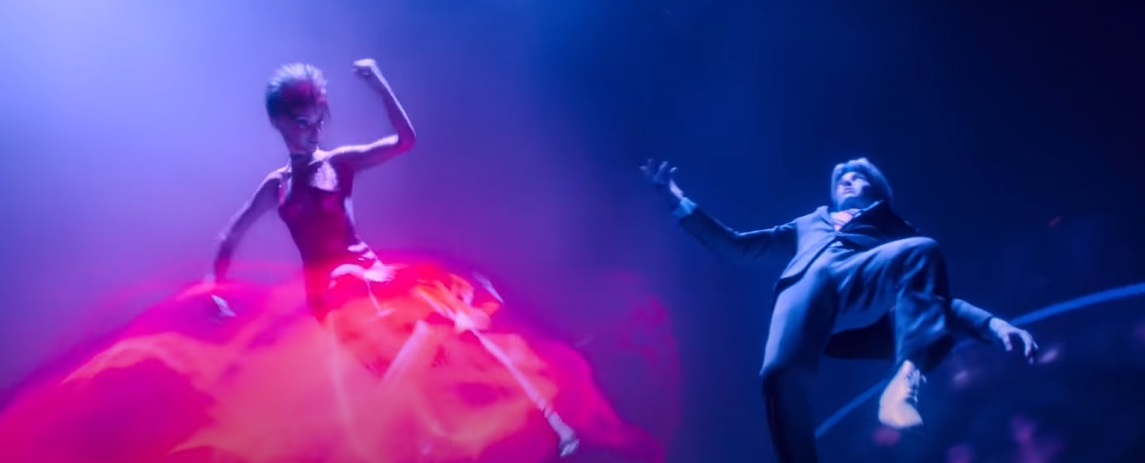
But all of those are the problems the film retains by translating the book's story pretty faithfully to the screen. What's more fascinating to me is how and why the film is better than the book.
Wade's inner monologue is almost entirely gone. That's a huge positive already; in the book it makes him even more of a whiny entitled know-it-all. The book also reveled in its pop culture references, shining a light on how many references it knew, and how cool the protagonist (and author) were for knowing them. In a visual media, those references are largely relegated to background details, which streamlines and spotlights the story, making the references more of a fun flavor to the film than the focus. In such a position, these references doubly serve as neat Easter eggs for the audience to spot, and also a way of establishing this world as one where people customize themselves and their identities partly around the stories they've loved.
That ties into the most interesting part of this movie: its depiction of a virtual world as a cultural amalgamation. I can't really think of a mainstream videogame that does this. MMOs like World of Warcraft and Final Fantasy XIV and Second Life all have various restrictions, but Ready Player One's OASIS has much fewer. Of course people in a virtual world would want to try being Tracer from Overwatch, or a cat person, or a giant robot. And while this vision is enabled by Warner Bros.' hoarding of creative property (also on display in The Lego Movies and the upcoming Space Jam 2), it is heartening to see a world I'd love to see, in which everybody has the freedom to shape their image and identity as freely as they desire.
TV
Space Force
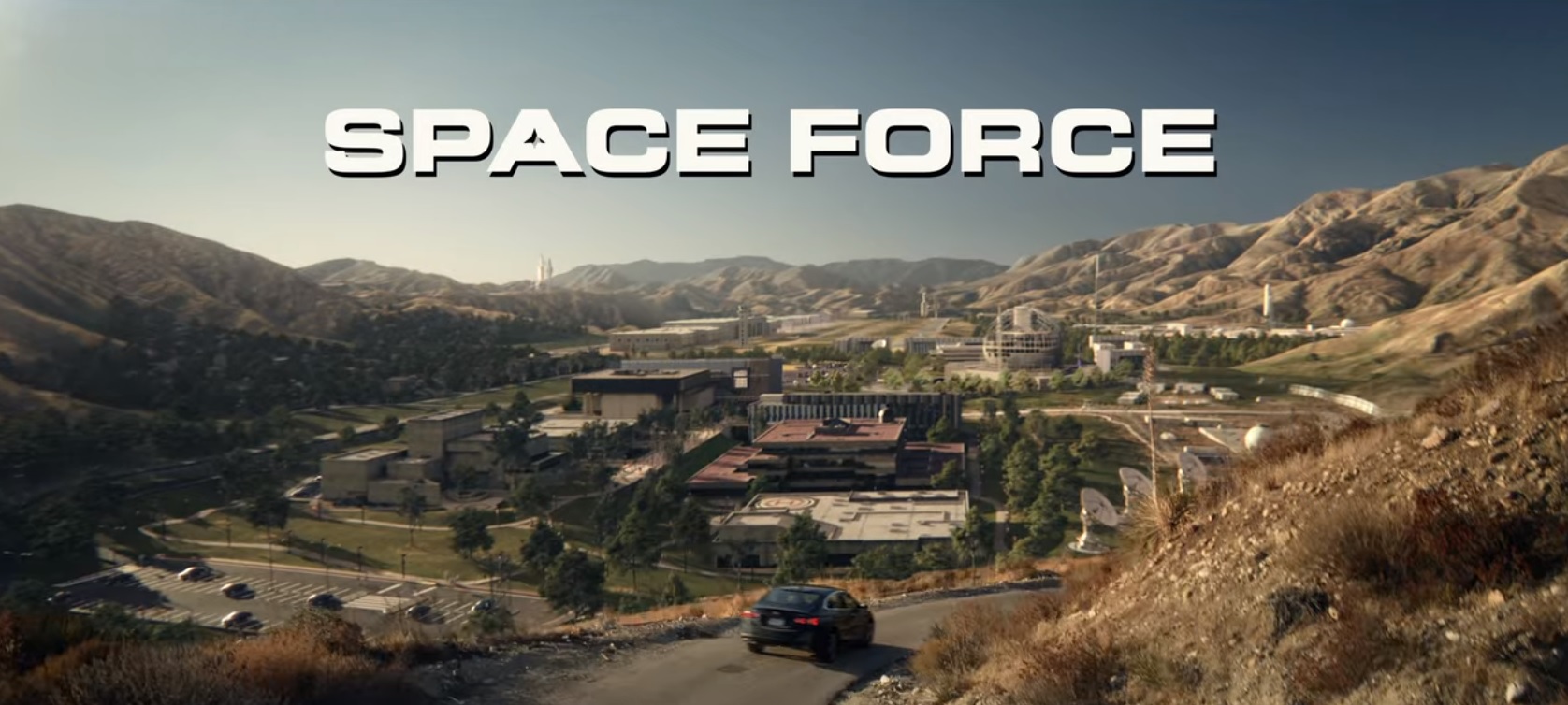
I really needed some light comedy sci-fi television to get thru the second half of February, and both this and the next show on this list surprised me with how good they are.
Space Force is probably the only way I can see humor about the Trump administration really ever working. The humor of The Daily Show from the Bush era really backfired during the Trump administration, because while that humor felt like cutting insights into the greed and corruption behind politics and the media in the 2000s, Trump used those ideas to his advantage to do horrible things for four years. It was really really hard to be funny about that, and I think a lot of comedy institutions suffered for it, or moved away from politics entirely.
Space Force is a story about General Mark Naird (played by Steve Carrell), an air force general who's recruited to be the new head of Trump's new branch of the military: the Space Force. (Yes, this is a real thing.) As Space Force attempts to get a military presence in space, and ultimately on the moon, the show uses the tried-and-true comedy technique of Murphy's Law: everything that can go wrong, does.
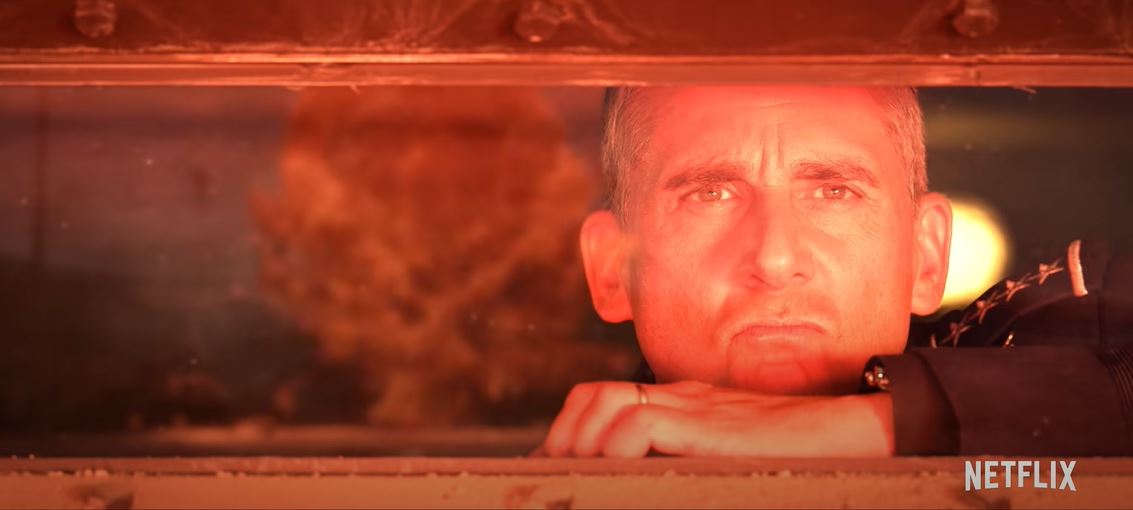
I was not encouraged by the premise of the show, which was to make fun of one of Trump's many heinous and wasteful acts as president. A couple things about this show make it actually work pretty well. The first thing is that Space Force as a concept is more ridiculous than actively harmful, and everybody (especially Naird) seems to be aware of that to some degree.
The real thing that makes the show work is that it's ultimately about a group of people who are trying to do their best under ridiculous circumstances. There's two hearts to the show: Naird's relationship with his family, which he tries valiantly to save even as it falls apart in various ways, and Naird's relationship with his chief scientist Dr. Adrian Mallory, played by John Malkovich. Mallory (along with other minor characters in the show) balks at the idea of the militarization of space, but also revels in the idea at being given actual funding for space exploration. His push-and-pull relationship with Naird, in which they alternately respect and distrust each other, provides the drama for many of the show's strongest episodes.
Showrunners Greg Daniels and Steve Carrell are most notable for their work on The Office in the 2000s. But there's been a shift in the comedy scene in the last decade, one that the Office creative heads have rolled with, which I really appreciate. The Office may have been the most popular sitcom of its time, but by the time Parks & Rec aired in 2009, cringe comedy was already on the way out. The Office creators have increased the level of earnestness, optimism, and humanity in every one of their projects since then, including later seasons of Parks & Rec, Brooklyn 99, and The Good Place. Space Force continues that trend, keeping its story relevant and heartwarming, and still managing to be deeply funny. Steve Carrell's still got the chops, and this is the best mixture of dramatic and comedic I've seen him do in years.
Resident Alien
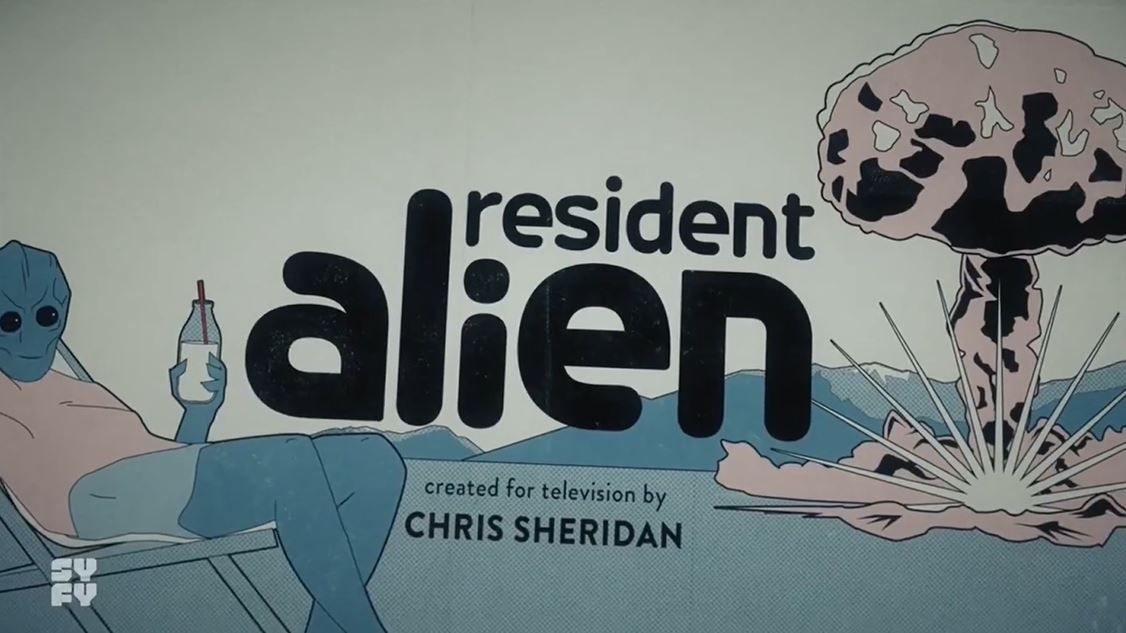
I'd like to start this with a disclaimer: this show's first season finished airing very recently, but I've still only seen the first few episodes. I lost easy access to the show in March, and haven't gone out of my way to go find the latest episodes since then. That does speak somewhat to the show's quality, but not entirely. It's a pretty good show.
Resident Alien is a Syfy show about an alien, played by genre veteran Alan Tudyk, who crashlands on Earth. The alien kills and steals the body of a human, and pretends to be the human in order to get around the local town, Men in Black style. While the alien attempts to salvage his ship and continue his intended mission of destroying the Earth, he gets mistaken for the town's new doctor and roped into their search for a potential serial killer.
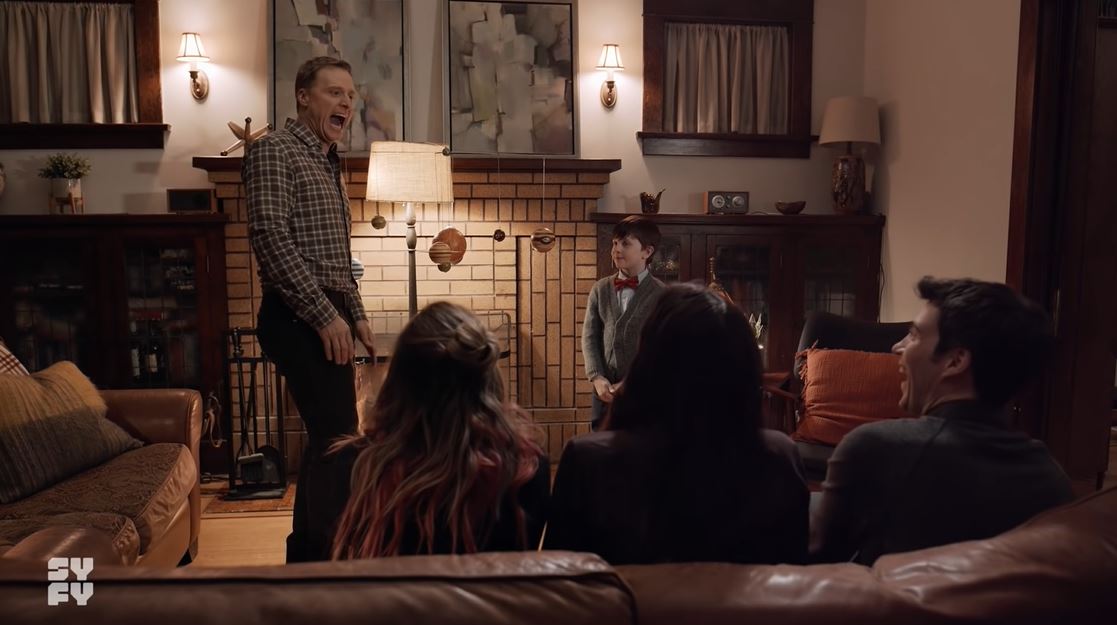
The show's a bit unfocused, and there's a few too many subplots, but I wanted to bring it up because it's one of the best depictions of an autistically-coded main character I've seen in mainstream television. Too many autistic characters are treated in the same stereotypical way: cold aloof geniuses with no emotional intelligence. Yet they remain successful because they're what the audience expects, and so shows like The Good Doctor and Young Sheldon get renewed for more and more seasons.
But by merely having a main character who doesn't quite see the world in the same way most humans do, but is trying quite hard to understand it, Resident Alien is truer to the autistic experience than many shows I've seen with more explicit intentions as such. It's far from perfect, but it's fascinating how in *not* trying to make this show about neurodivergence, Resident Alien has succeeded so well.
WandaVision
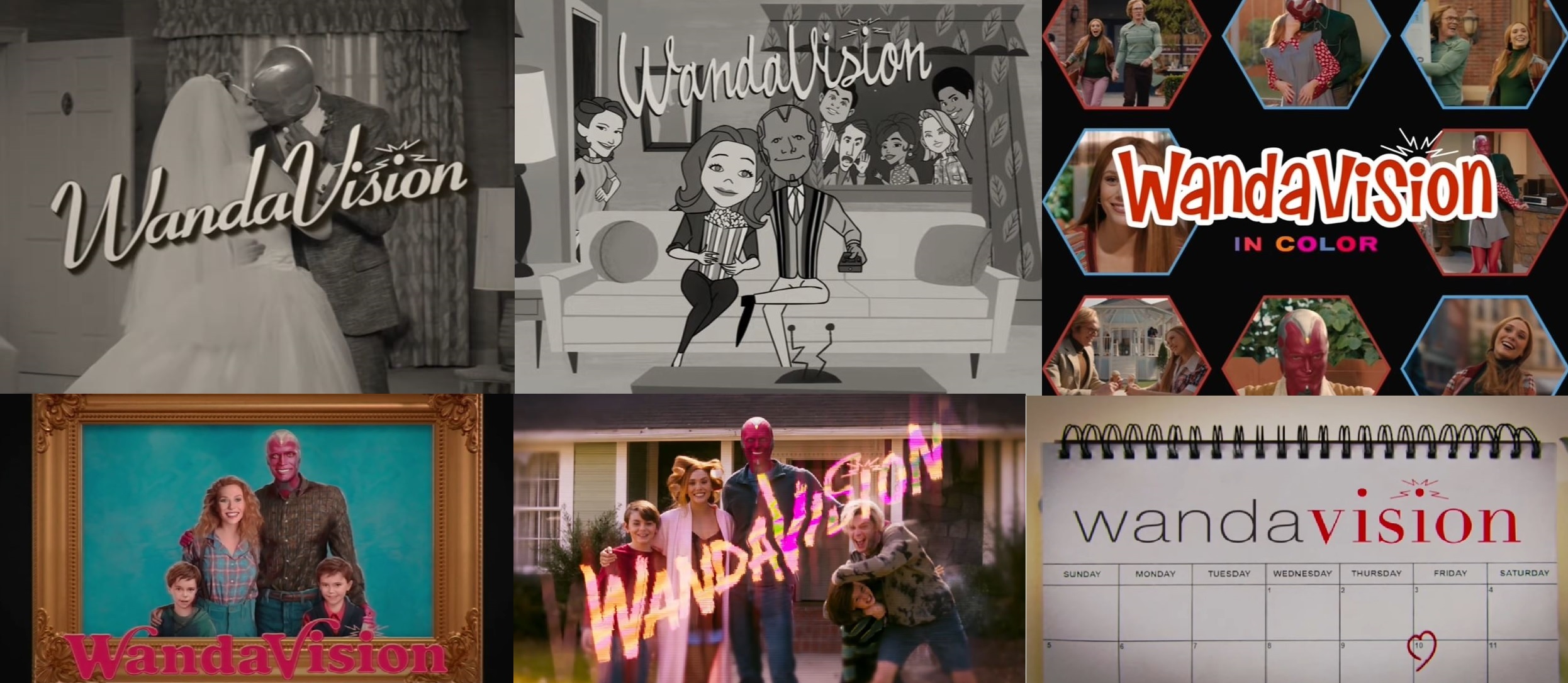
Bravo to Marvel Studios and the entire team behind this show. WandaVision is a phenomenal thing, and is one of my favorite projects in the entire MCU.
I wrote about the first half of this show in my last "best of the month" post for January 2021, and the biggest thing I want to emphasize here is how well they stuck the landing. WandaVision's second half includes even more Easter eggs, subplots, red herrings, and teases of future projects, to the degree that it could have gotten unwieldy -- and yet it still manages to tell a smart and tightly-written story that's ultimately about Wanda Maximoff's grief and loss, and how she copes with it.
The closer the show gets to its conclusion, the more that the cracks that appeared in the facade in the show's first half become actual rifts. Wanda and Vision have a falling out, and barely speak to each other from episode 6 until just before the finale. Wanda has to exert more and more magical control over her own little slice of heaven, and yet also questionss how much control she really has.
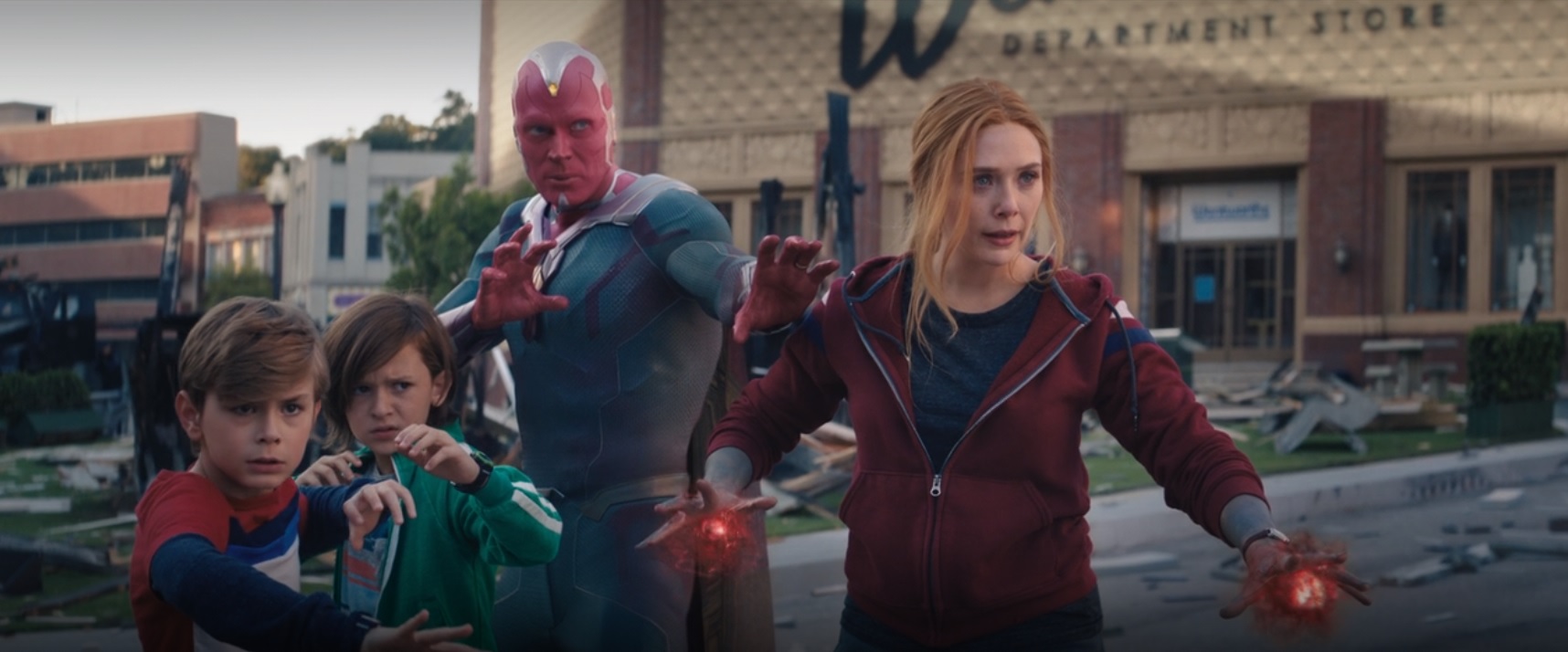
By the time the finale rolls around, WandaVision isn't a send-up of sitcoms anymore, and the last episode plays like the final half hour of a Marvel movie. Fans were divided; I loved it. Firstly cause it's fun as heck, and I'm a sucker for cool superhero fights. But also, it felt like the show positioned the MCU, in its quippiness and its soap opera drama and its dozens of characters moving easily from franchise to franchise, as a (potential) next logical step in the growth of the sitcom.
By the time the show finishes, several further Marvel projects have been set up. Monica Rambeau got an awesome superhero origin story in the margins of this show, and she'll be featured in the next Captain Marvel movie. Wanda's discovered new powers that will bring her to Doctor Strange in his next film. And there's hints towards an as-yet-unannounced Young Avengers project, too. But I'll remember WandaVision fondly as a show that, rarely for this genre, *did* deliver on the insane hype from week to week, and told a satisfying and cathartic story about grief, love, and trauma.
The Falcon & the Winter Soldier
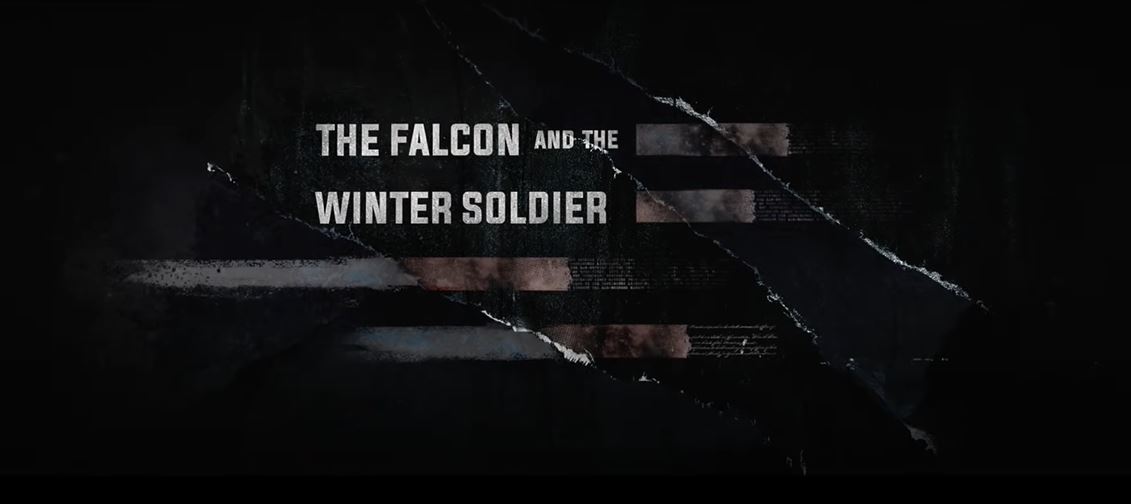
It's a really good thing that Marvel changed their plans and aired WandaVision before Falcon & Winter Soldier, because the two shows really don't compare favorably in terms of quality.
F&WS focuses on fan-favorite Captain America supporting cast members Sam Wilson and Bucky Barnes, in the immediate aftermath of a major plot cliffhanger from Avengers: Endgame. Having decided to retire, Steve Rogers has given Sam Wilson the Captain America shield, bequeathing the heroic identity to one of his best friends.
Sam, however, doesn't think that the world needs a Captain America anymore, and donates the shield to the Smithsonian. Steve's other best friend, Bucky, gets very pissed about this, especially when the US government decides, "no actually we do want a Captain America, we're going to give it to our most decorated soldier, John Walker." When Bucky goes to confront Sam, he's roped into Sam's current mission: tracking down a group of anarchists named the Flag-Smashers that seem to have gotten access to super-soldier technology.
Once they're hanging out together, Sam's and Bucky's chemistry is actually really really good. It annoyed me in the trailers, but in context it works a lot better. Bucky's constantly pissed off, which fuels a lot of the banter, but it's for the pretty understandable reason that he thinks Sam disrespected his childhood friend by giving up the shield. The two are fun in action scenes together, and even the actor playing John Walker is giving it 100%, perfectly riding the line between kinda likeable and kinda a complete jerk.
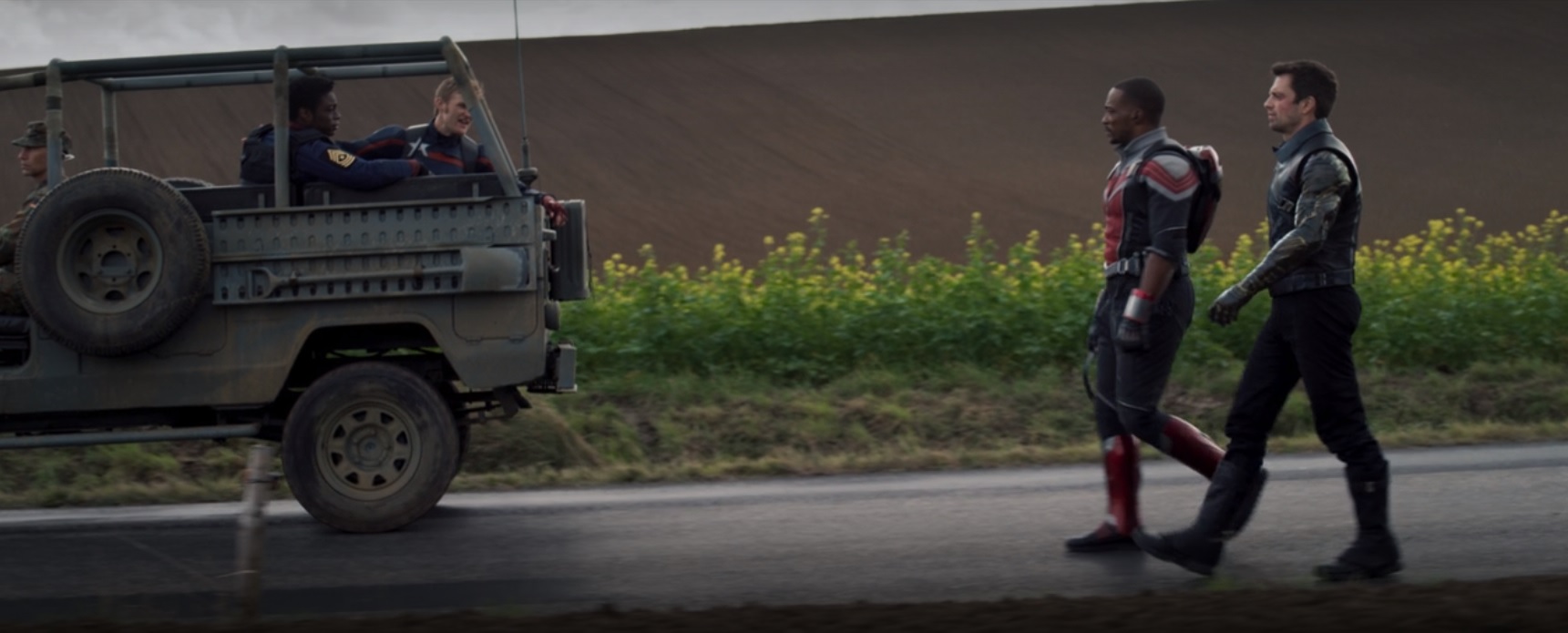
But I have so many issues with this show. It raises so many questions. Okay, so the Flag-Smashers are a group of people who aren't pleased with how many resources are being given to the 4 billion people who have suddenly re-appeared on Earth after the events of Endgame, and who are now refugees. Answer me this: why is the group who are anti-refugees also anti-borders? Surely they'd want *more* borders in order to restrict movement of goods, services, and people, so that they don't lose the resources they have?
The answer of course, is that it's another example of Marvel creating a villain with both left-leaning and right-leaning politics smashed into one, so that everybody watching has a reason to sympathize with and dislike the villains. It may be good business sense, but it doesn't hold up to much narrative scrutiny.
Here's my other issue: when Steve Rogers was hired to be Captain America, he was initially used by the US government as a propaganda machine to help finance WWII. It kind of *is* the government's right to make a new Captain America out of whoever they want, especially if the original guy isn't around anymore, and they got the shield back in their possession. Has the mantle come to mean more than that? Steve certainly seemed to think so, given his actions in The First Avenger, and I bet that's part of what F&WS will grapple with in the second half of its run. But the approach of hiring John Walker isn't a totally and innately invalid one, either.
Otherside Picnic

If there's one show that I really want to recommend more than any other this month, it's Otherside Picnic. This show is tremendous.
While most of the anime community had their eye on Wonder Egg Priority this season (I'll get to it, I've been waiting for it to finish before I watch it), a friend and I happened upon Otherside Picnic. Based on a light novel series, Otherside Picnic follows two girls (Sorawo and Toriko) as they explore an alternate reality, capture monstrous beings for profit, and search for Toriko's missing best friend.
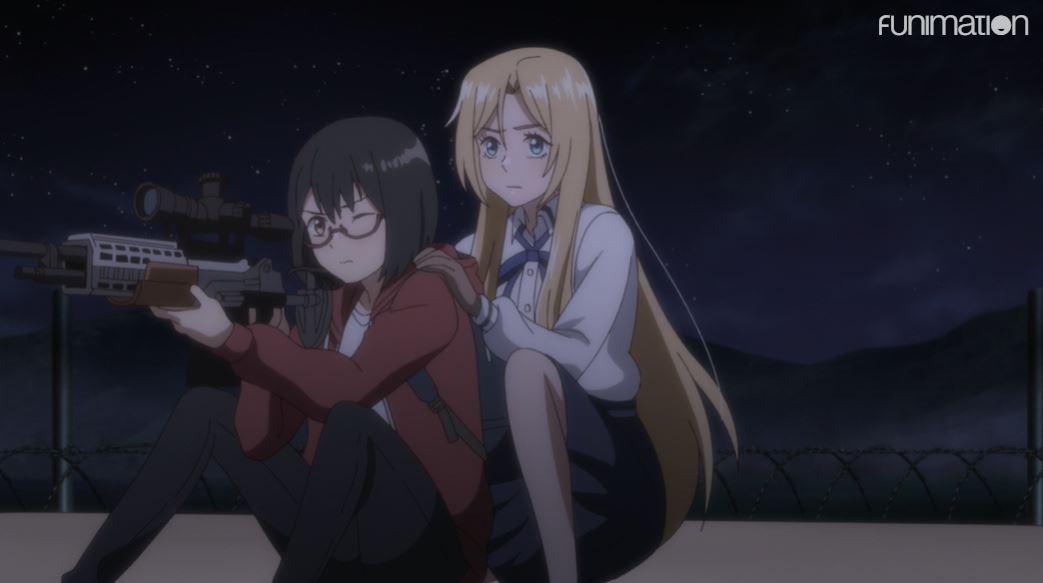
Otherside Picnic is a yuri light novel series. That means it's about a queer relationship between two women. And while the light novel series does (supposedly) end up being more explicitly gay as it continues, we only get hints and teases of this in the anime adaptation. Pretty strong teases, tho; Sorawo and Toriko have a great deal of affection for each other, and the determination with which Toriko searches for her best friend, supposedly trapped somewhere in the alternate universe, reads suspiciously like somebody looking for a lost lover.
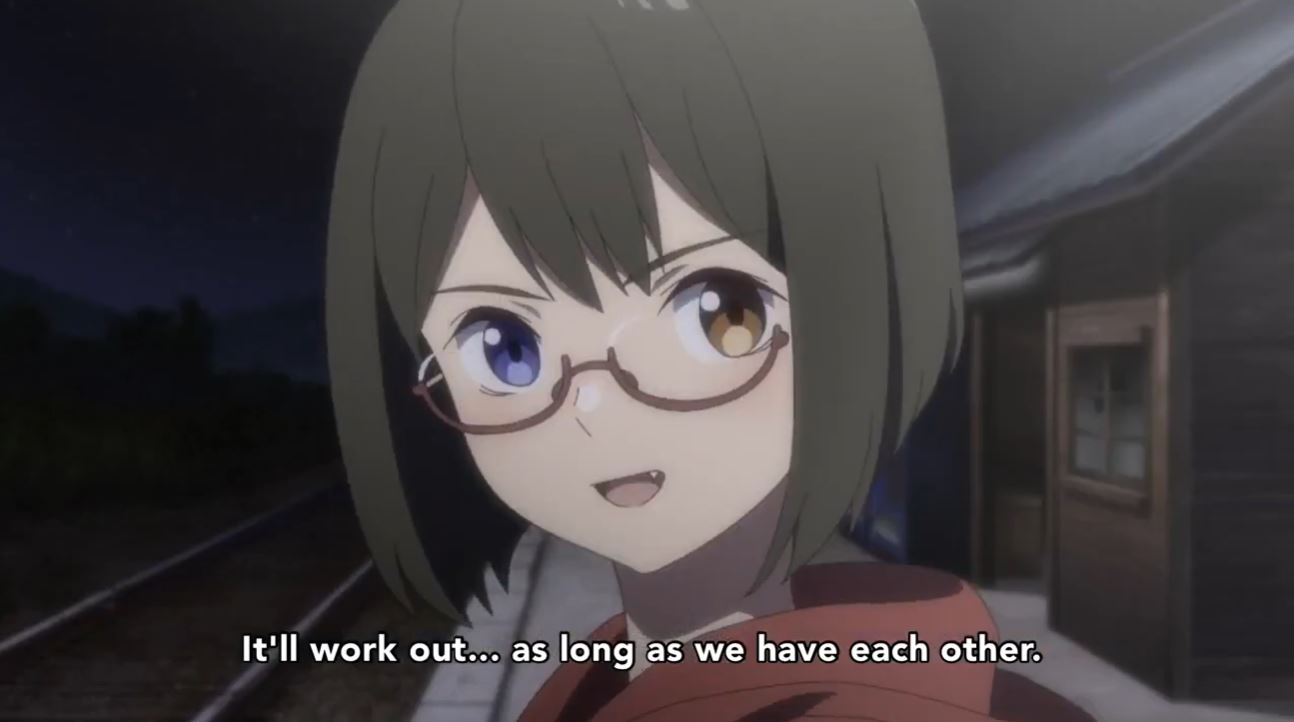
I'll be honest, Otherside Picnic is not very deep. It doesn't have much to say at its core besides "hey, let's go on some fun and scary adventures together!" Moreover, this show wasn't widely watched, and its fanbase seems miffed that this adaptation wasn't as faithful as it could have been, including (among other things) switching up the chapter order for the anime.
But darn it, I had a lot of fun with this. Sometimes it's just cool to see a representation of yourself in media. I like that the protagonist is a tomboy with great hoodie style and heterochromia in her eyes. I like the relationship that the two girls develop over the course of the anime, to the point where they innately trust each other in their adventures by about the halfway point. After immersing myself in Love Chuunibyo & Other Delusions, which posited that an imagined magical world can actually be beneficial to your mental health, it was neat to see a show that builds on those ideas by saying this: "the adventures that magic may take you on can be scary, but it might also bring you closer to the people you love."
GAMES
Hitman 3
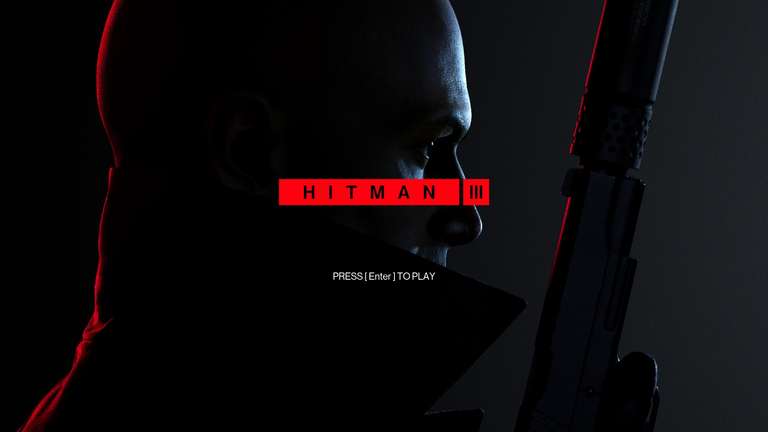
I am agog at this game. I am astounded at the beauty and craftsmanship and fun that's been crammed into every nook and cranny of Hitman 3. What an amazing game this is.
In January, I played all the levels of Hitman 1 and 2, most of them for the first time. They are incredibly good games with incredibly good levels. But Hitman 3 raises the bar even higher.
The first level of the game, set in a Dubai skyscraper, is a riff on a Mission Impossible sequence, perhaps the one from MI4 that was also set in a Dubai skyscraper. The second level of the game contains a murder mystery in an old Agatha Christie-style mansion, similar to the premise of Knives Out. The third level of the game is a dark thriller in which 47 has few resources and no guidance on who his targets are. The fourth level is an epic sprawling level that takes place in the neon-lit and rainy streets of China, ending in a huge underground lab. The fifth level is the most old-school Hitman the game gets; it's a pretty straightforward level in a winery, with a couple of neat twists that keeps the story exciting. And the sixth level is a linear level on a train that is nonetheless extremely fun.
The whole experience is breathtaking. The variety on display, the craft of the game design, and the evolution of the art style are all incredible. The narrative more directly informs the mission styles in this game than in the previous two installments, which means there's refreshing variety to the gameplay style. And of course every level looks tremendous. My jaw dropped when I emerged onto the streets of Chongqing.
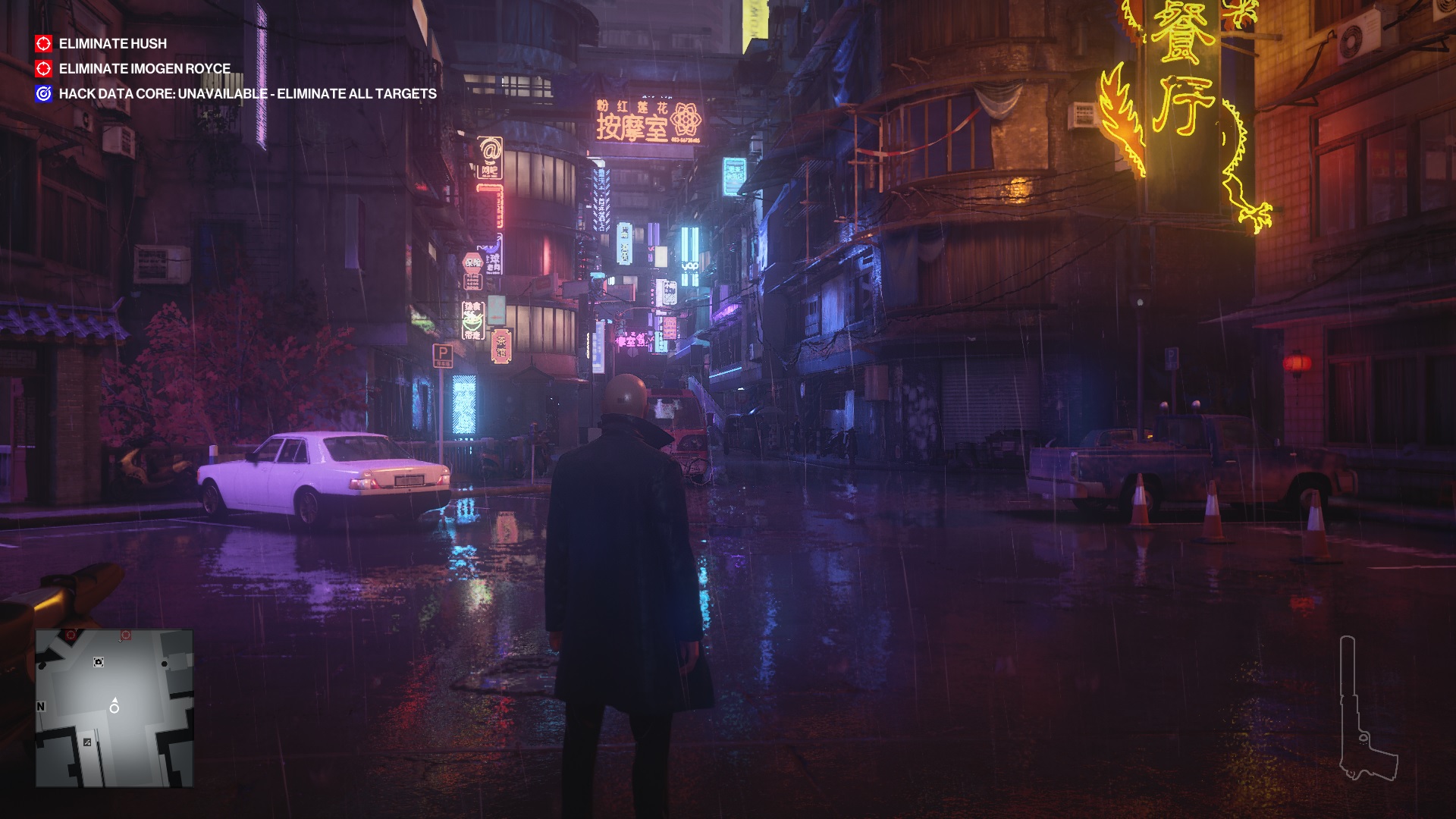
I also don't want to understate the quality of Hitman 2's DLC levels, which I also played recently. The bank heist and the island resort are two absolute classics; it's insane that they were relegated to DLC levels, but the series' main levels are already so good that I'm not totally surprised.
I'm going to be playing this game for a long time yet. There's seasonal content, new DLC, and elusive targets that are still being released on a monthly basis, and I haven't even come close to playing the trilogy's original twenty-odd levels as much as I want to. It's a very strong contender for my game of the year already - but then, so is the next item on this list.
Super Mario 3D World + Bowser's Fury
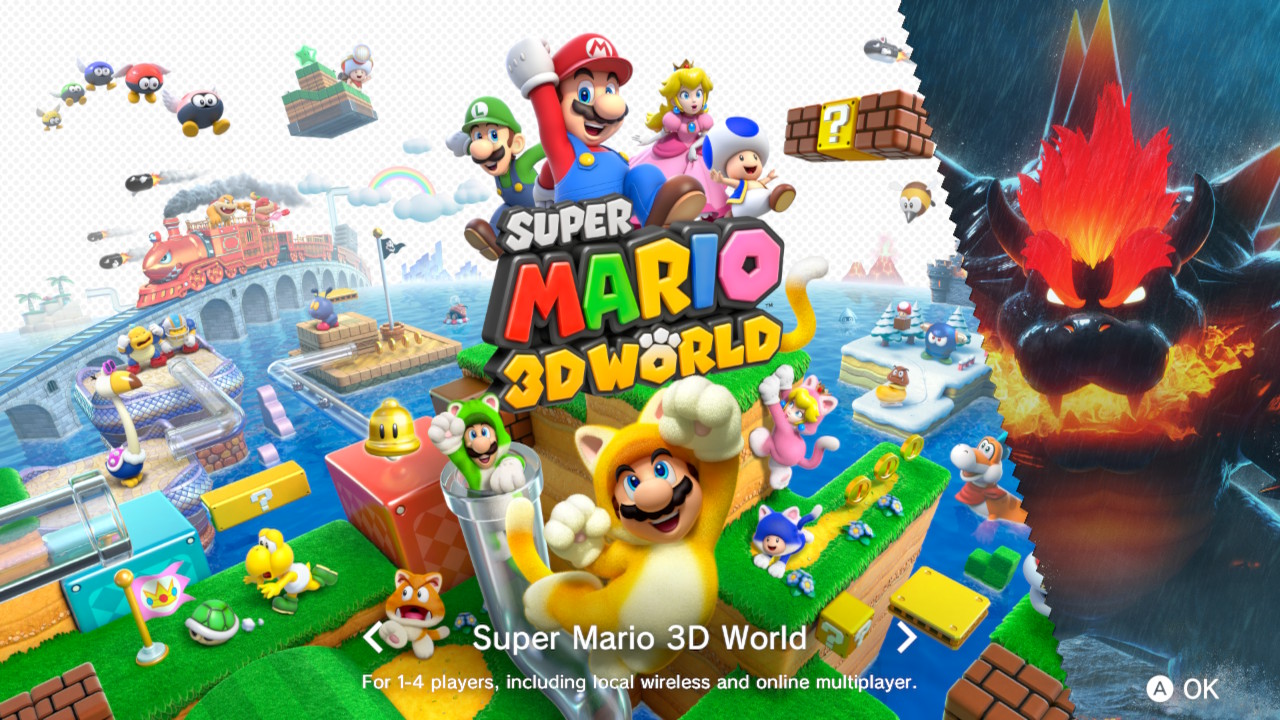
It shouldn't be fair for the same game to be this central to my gaming experience two years in a row, but such is the case with this Switch re-release of a Wii U game I first played and loved last year.
Nintendo has been very proactive about bringing most of the major games on the failed Wii U console to the much more successful Switch. So as soon as I played Super Mario 3D World on Wii U last year, I figured it was a matter of time before it came to Switch. And here it is, complete with a full new game as a pack-in: Bowser's Fury, the most open-world a Mario game has ever been.
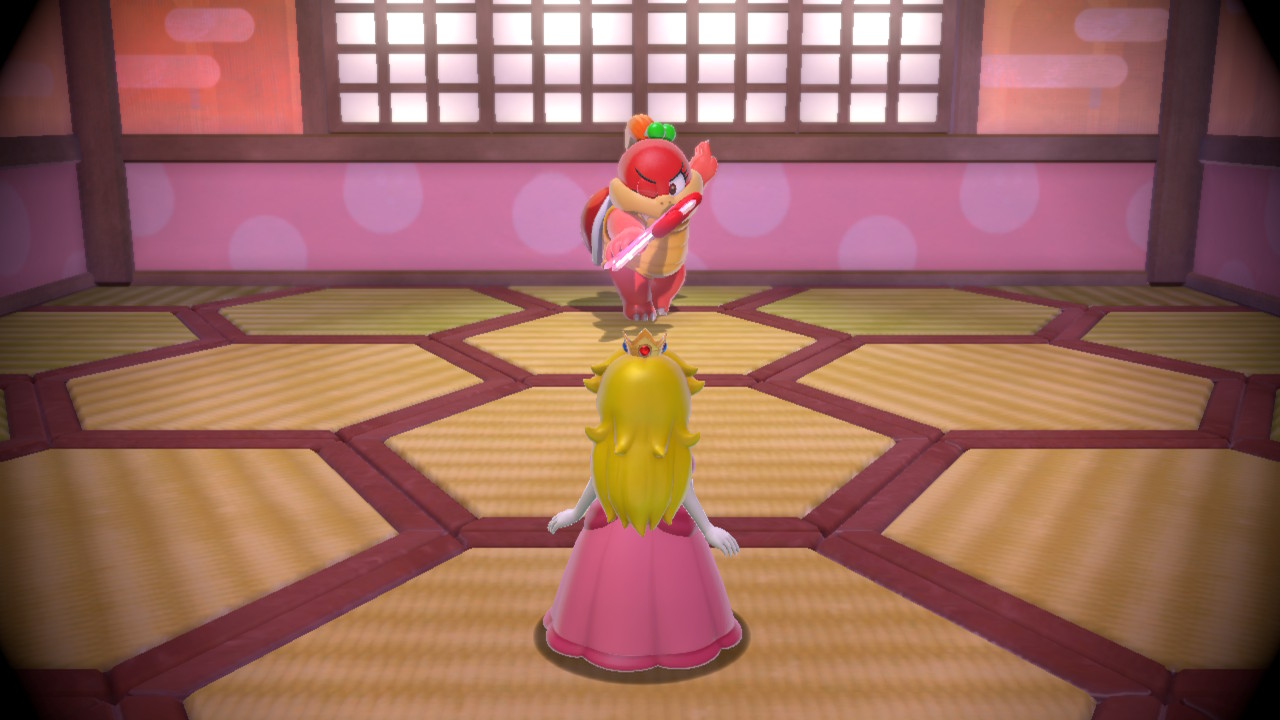
Most of the gaming community has been excited about Bowser's Fury, and what it could mean for the future of Mario games. But I've been spending nearly all of my time with the original Super Mario 3D World, now ported to and refined on Switch. There's been a few minor changes to the game, but one that really changed the game on a profound level: the characters' top speed has been increased. That helps a lot with the tricky jumps and courses that appear in the game's post-credits levels, and it's allowed me to play thru those endgame levels for the first time.
I'm just a couple challenges away from finishing every level in the game, and I've barely played Bowser's Fury, so I expect to still get quite a lot of enjoyment out of this. Super Mario 3D World on Switch is just as fun as it was last year on Wii U, and maybe even more so.
YOUTUBE
Defunctland
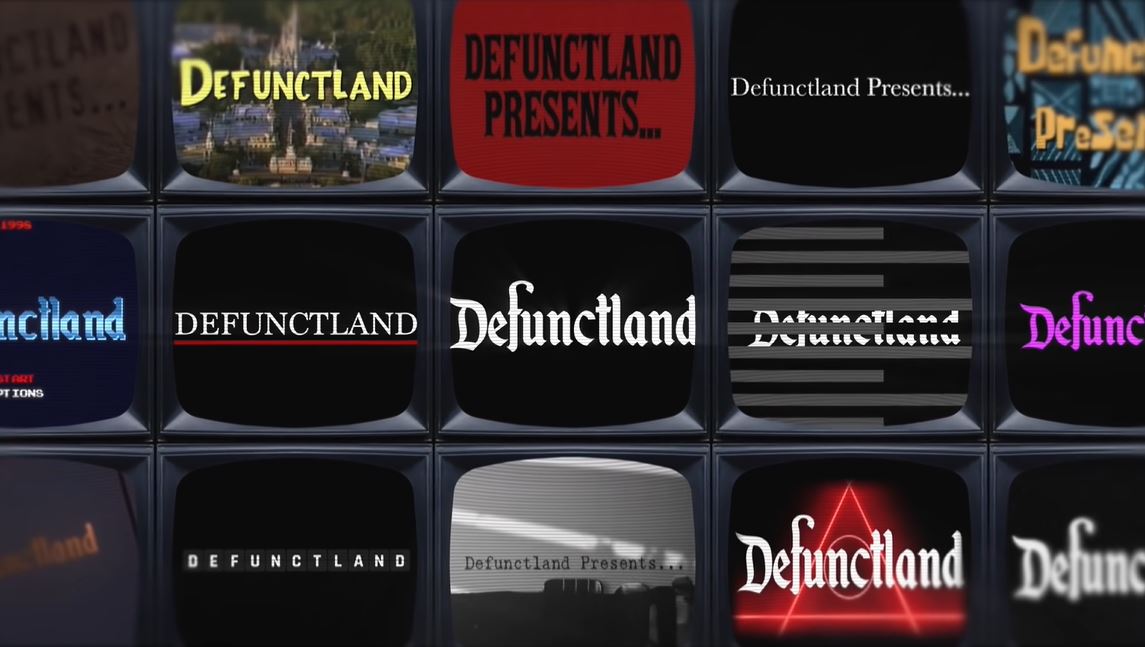
And finally, a shout-out to Defunctland, a Youtube series I've been enjoying a lot recently. Defunctland is a show that explores the history of amusement parks, thru concepts and rides and even entire parks that have since been shut down.
I love amusement parks in general, so I was always going to love this show. But I'm continually impressed at the production quality, how in-depth the research is, and how much archival footage Kevin Perjurer is able to dig up.
Season 2 focuses on Michael Eisner's tenure as CEO of Disney, and season 3 focuses on the early days of the Disney parks. In both cases, I have been continually surprised and intrigued by the naked celebration of capitalism on display in the parks and in the company. From the rampant sponsorships of early Disney rides, to Eisner's constant attempts at starting new products for a quick profit, both seasons have put a spotlight on Disney prioritizing profit over story in a way that seems to have been disguised better in recent years.
There's also DefuncTV, which focuses on cancelled shows, including a six-part miniseries on the work of Jim Henson. I feel like Defunctland has gotten very popular recently, but in case you've never heard of it, I highly recommend giving it a shot.